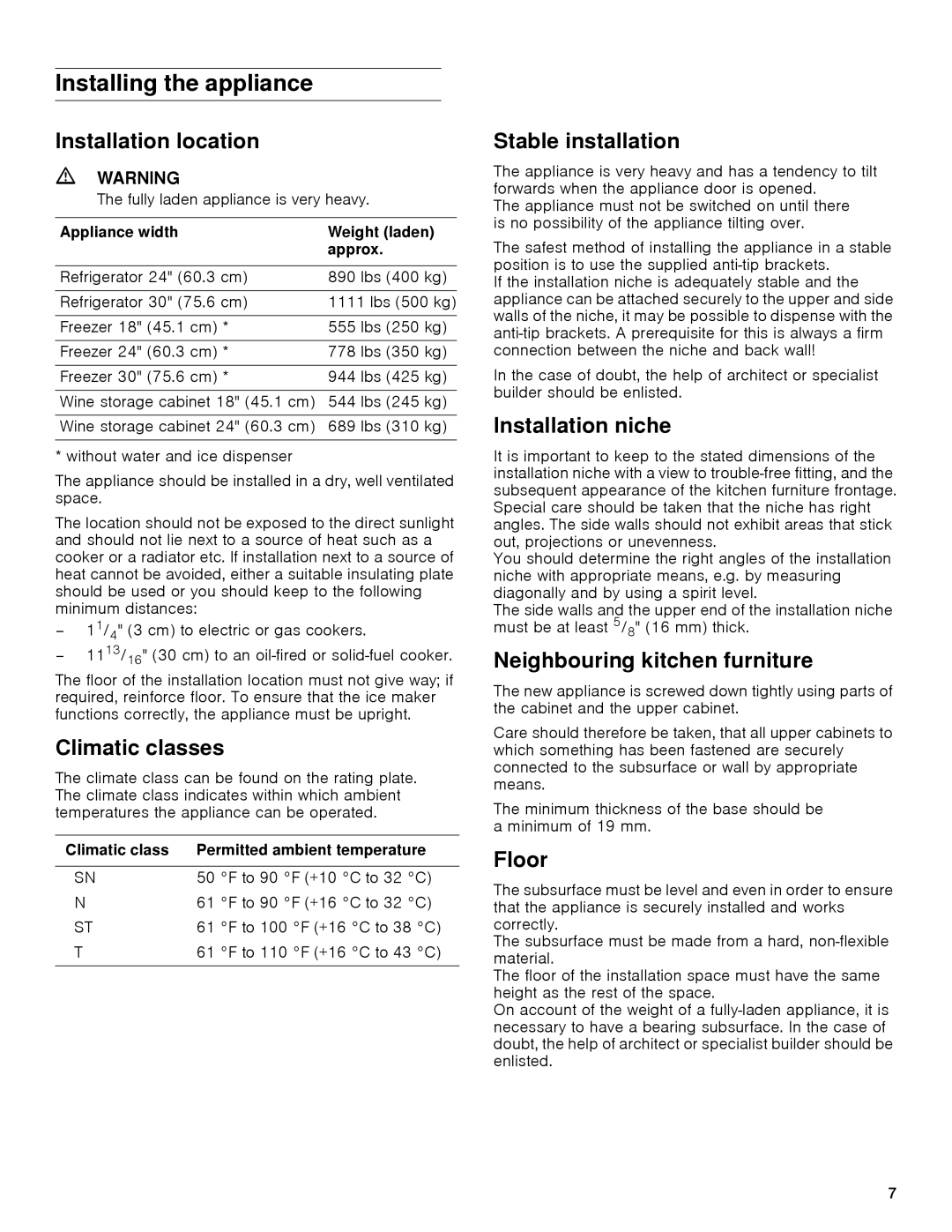rc 462/413 rf 411/413 rf 461/463 rf 471 rw 414/464 specifications
Gaggenau, a luxury brand known for its innovative kitchen appliances, has recently expanded its line of high-performance ovens with the introduction of several models, including the RC 462, RF 411, RF 413, RF 461, RF 463, RF 471, RW 414, and RW 464. Each model incorporates cutting-edge technology and premium craftsmanship, specifically designed to meet the needs of gourmet cooks and culinary enthusiasts.The RC 462, for instance, boasts an advanced design that combines functionality with style. It features a unique combination of steam and convection cooking, resulting in perfectly moist and flavorful dishes. This model's intuitive controls and large LCD display make navigating through its multiple cooking modes seamless and user-friendly.
Similarly, the RF 411 and RF 413 models emphasize versatility, allowing cooking enthusiasts to prepare a variety of dishes with precision. These ovens offer multiple cooking modes, including baking, roasting, and steaming, which can be easily adjusted to accommodate diverse culinary techniques. Their robust thermal insulation ensures energy efficiency while maintaining consistent cooking temperatures.
The RF 461, RF 463, and RF 471 models take performance to the next level with their intelligent heating technology. These ovens feature dynamic air circulation, ensuring even heat distribution throughout the cooking cavity. This technology is particularly beneficial for baking, where consistent temperatures are crucial for achieving the desired results. Additionally, the units come equipped with self-cleaning capabilities, freeing users from the tedious task of maintaining cleanliness.
The RW 414 and RW 464 models are designed with a focus on modern aesthetics without compromising functionality. These built-in ovens feature sleek finishes and customizable options that blend seamlessly into any kitchen décor. Their advanced programming capabilities allow users to save and replicate successful recipes effortlessly.
In all these models, Gaggenau has prioritized user experience. The ovens include silent operation features, allowing for a peaceful cooking environment. The incorporation of smart home technology provides remote access and control, enabling users to monitor and adjust cooking processes from their smartphones.
Overall, Gaggenau's latest lineup of ovens, including the RC 462, RF 411, RF 413, RF 461, RF 463, RF 471, RW 414, and RW 464, showcases the brand's commitment to blending excellent craftsmanship with innovative technology, redefining the cooking experience for culinary aficionados. Whether one is baking, roasting, or steaming, these ovens offer unparalleled performance, making them essential tools for any modern kitchen.

